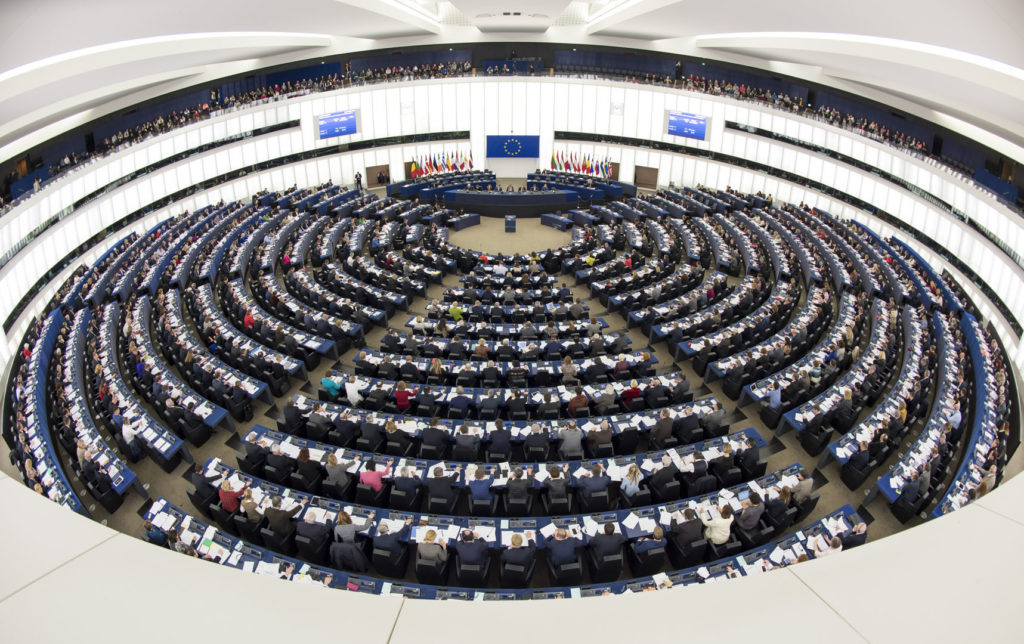Following years of severe political and democratic backsliding, the European Parliament recommended suspending EU accession negotiations with Turkey.
In a statement, the European Parliament says that it remains seriously concerned about Turkey’s poor track record in upholding human rights, the rule of law, media freedom and the fight against corruption, as well as its all-powerful presidential system.
In a resolution adopted on Wednesday by 370 votes in favour, 109 against with 143 abstentions, MEPs welcome Turkey’s decision, last year, to lift the state of emergency introduced after the failed coup attempt in 2016. However, they regret that many of the powers granted to the President and executive following the coup attempt remain in place, and continue to limit freedom and basic human rights in the country. MEPs express great concern about the shrinking space for civil society in the country, as a large number of activists, journalists and human rights defenders are currently in jail.
Taking into account the human rights situation and the new Turkish constitution, the European Parliament recommends that the current EU accession negotiations with Turkey be formally suspended.
Relations with Greece and Cyprus
With regard to Turkey’s relations with its neighbours, the EP calls on Turkey to intensify its efforts to resolve all disputes on the basis of international law and in the context of good-neighbourliness, condemns violations of airspace and marine waters of Greece and stresses the need for removing the casus belli. Special mention is made to Hagia Sophia, with MEPs opposing every extreme view that promotes the alteration of its physiognomy as a historical-religious monument, as well as its transformation into a mosque.
MEPs reiterate the EP’s position on a fair, comprehensive and sustainable settlement of the Cyprus issue, based on a bi-communal, bi-zonal federation with a single international legal personality, single sovereignty and single citizenship and political equality between the two communities, as defined in relevant UN Security Council’s resolutions in accordance with international law and the EU acquis, and based on respecting the principles on which the Union is based. They call on the EU and the Member States to play a more active role in the successful conclusion of the negotiations.
The resolution also called on Turkey to start withdrawing its troops from Cyprus, to transfer the enclave of Famagusta to the UN, and to refrain from actions related to illegal settlements. It recognizes the right of Cyprus to conclude bilateral agreements on the EEZ and calls on Turkey to fully respect the sovereign rights of all Member States, including the rights relating to the exploration and exploitation of natural resources. Finally, the Turkish government is invited to cooperate, or at least to consult with Greece and Cyprus, on any future developments for the Akkuyu nuclear plant.
Parliament stands behind Turkish citizens
Despite the serious situation, MEPs express their will to stand behind Turkish citizens, and keep the political and democratic dialogue open. EU funds must be made available – not via Ankara, but to Turkish civil society – for human rights defenders, students and journalists to promote and protect democratic values and principles.
Modernising the EU-Turkey Customs Union
MEPs believe that to keep Turkey economically anchored to the EU, the possibility to upgrade the 1995 EU-Turkey Customs Union to include, for example, agriculture and public procurement, must remain an option, but only if there are concrete improvements in the field of democracy, human rights, fundamental freedoms and the rule of law.
Visa liberalisation
Further, MEPs encourage Turkey to fulfil all 72 benchmarks for EU visa liberalisation, to benefit Turkish citizens, particularly students, academics, business representatives and people with family ties in EU countries.
Turkey’s role in the migration crisis
Finally, regarding the war in Syria, the resolution recalls Turkey’s important role in responding to the migration crisis and the government’s efforts to grant refugees temporary protection. The EP takes the view that the country and its population have shown great hospitality by offering shelter to more than 3.5 million Syrian refugees, but at the same time urges them to respect the non-refoulement principle. Member states, on the other hand, need to keep their promises regarding large-scale resettlement.
